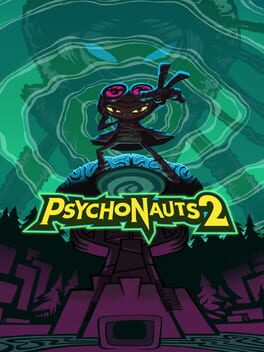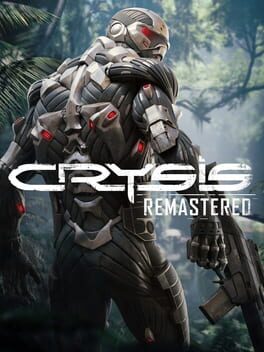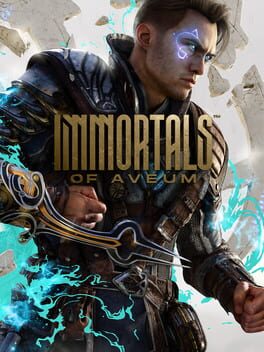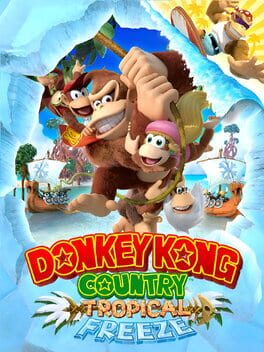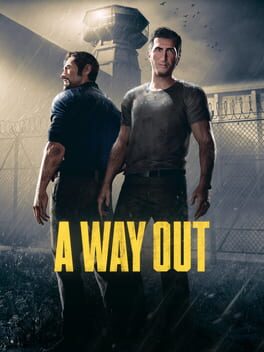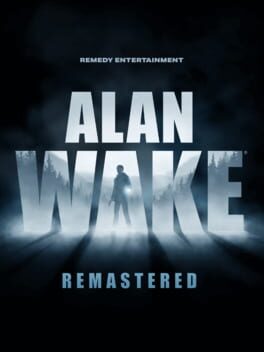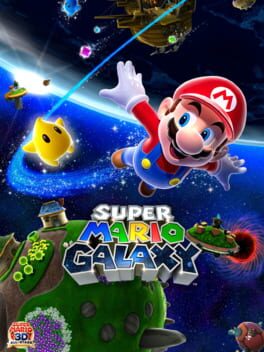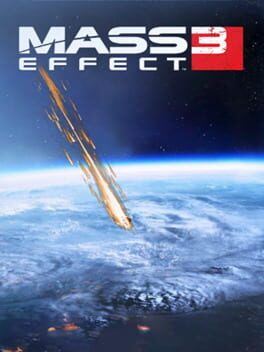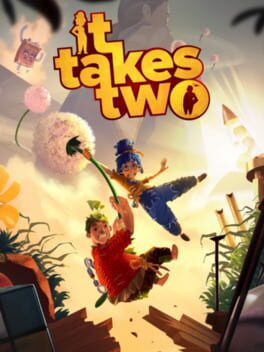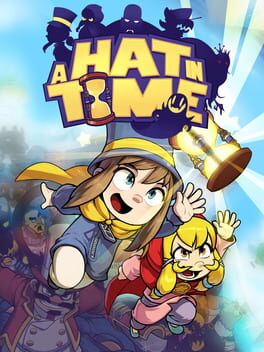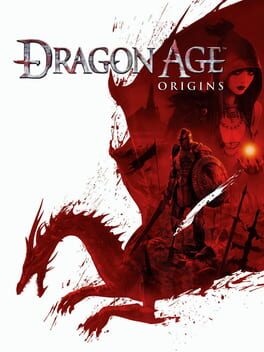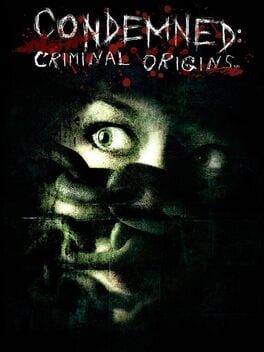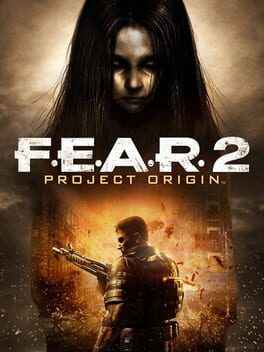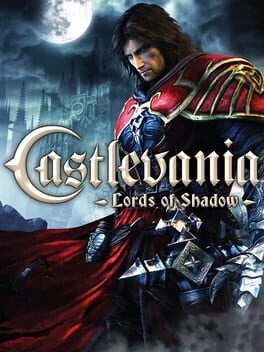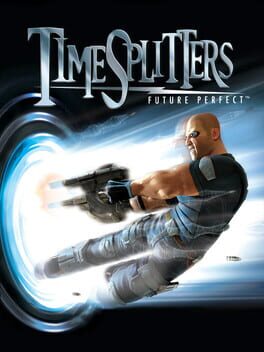Shobbrook
2021
The original Psychonauts was an absolute delight. It held up extremely well for a PS2 game and was brimming with unique ideas, creative artistic choices and a lot of good humour. The sequel is much the same, it is blast.
Going from one to the other, the near two decades of quality of life improvements make the act of playing Psychonauts 2 so satisfying. Where the original is clunky and showing its age visually, this gameplay is smooth as butter and the visuals are outstanding - both in their fidelity and in the actual art design.
I do have an issue with this sequel, and it's more a matter of personal opinion than concrete factual critique, so bear that in mind. I found the levels of the original game to be far more compelling. Each and every level in this game just feels like a simple idea. Slight spoiler warning for the level themes: there are things like casino, library, game show, mail room - all of which play and look great, but there just isn't that same charm. There is nothing so bold as entering the mind of a man who thinks himself to be a descendant of Napoleon Bonaparte and having to physically shrink down into a board game to help him win. Months later, I can recall every level of Psychonauts 1, but even having only just beaten it I struggle to remember everything in the sequel.
This is best showcased when comparing the two final levels of the game (although there is technically one more in Psychonauts 2 that you cannot return to and just acts as a final boss arena). In Psychonauts 1, you combine the minds of both yourself and the villain and have to overcome a nightmarish mashup of your childhood traumas - a circus and a butchery. It was genius. In Psychonauts 2, the final level is a theme park ride with cardboard cutouts that act to give exposition on the plot twist that preceded you entering that mind. Do you see what I mean?
Again, this is just personal opinion, and it's not like I don't like the levels of Pyschonauts 2 at all - this is still a great game - but in a way it lacks the same charm. The same can be said of the story in a way; it's grander in scope, more mature, but doesn't have that same vibe that I liked in the original. I still highly recommend both of these titles. They are probably my favourite 3D platformers ever.
Going from one to the other, the near two decades of quality of life improvements make the act of playing Psychonauts 2 so satisfying. Where the original is clunky and showing its age visually, this gameplay is smooth as butter and the visuals are outstanding - both in their fidelity and in the actual art design.
I do have an issue with this sequel, and it's more a matter of personal opinion than concrete factual critique, so bear that in mind. I found the levels of the original game to be far more compelling. Each and every level in this game just feels like a simple idea. Slight spoiler warning for the level themes: there are things like casino, library, game show, mail room - all of which play and look great, but there just isn't that same charm. There is nothing so bold as entering the mind of a man who thinks himself to be a descendant of Napoleon Bonaparte and having to physically shrink down into a board game to help him win. Months later, I can recall every level of Psychonauts 1, but even having only just beaten it I struggle to remember everything in the sequel.
This is best showcased when comparing the two final levels of the game (although there is technically one more in Psychonauts 2 that you cannot return to and just acts as a final boss arena). In Psychonauts 1, you combine the minds of both yourself and the villain and have to overcome a nightmarish mashup of your childhood traumas - a circus and a butchery. It was genius. In Psychonauts 2, the final level is a theme park ride with cardboard cutouts that act to give exposition on the plot twist that preceded you entering that mind. Do you see what I mean?
Again, this is just personal opinion, and it's not like I don't like the levels of Pyschonauts 2 at all - this is still a great game - but in a way it lacks the same charm. The same can be said of the story in a way; it's grander in scope, more mature, but doesn't have that same vibe that I liked in the original. I still highly recommend both of these titles. They are probably my favourite 3D platformers ever.
2020
I find the history behind Crisis fascinating. I love how the developers just wanted to make a game so ahead of its time and didn't care about hardware limitations. It's interesting now that every game released easily looks like this or better, but the fact it still holds up this well despite coming out in 2007 is insane (I know this is a remaster, but the original still looks great).
The game its divisive among fans because of the (spoiler alert for the 17 year old game) fact it goes full alien in the final third. I personally very much enjoyed the shift. I didn't find the open level gameplay of the start of the game to be very exciting anyway. I hated how stealth was nigh impossible because of how well the enemies can see, and also just the sheer amount of enemies - to the point I still don't know if they were infinitely respawning at points.
I know that the first levels where you fight the humans are definitely more open to experimentation than the final linear sections - I won't argue against that - but I found that how fun and different the aliens were as combatants that it made up for the game cutting back on its more open elements.
This game is quite challenging, and not always in a fair way. I only played on normal difficulty, but I still found myself dying a lot - and usually to something I didn't even know was there. Regardless of my own skill level, something that is quantifiable is how infrequent the checkpoints are in the earlier missions. Dying to a man that was hiding silently in a bush is one thing; it is another to lose 10 minutes of infiltration progress and to have to resupply myself, walk back over to the base and then try again. This problem I have with checkpoints completely vanishes as the game gets more linear so maybe that's also a reason I don't mind the shift.
Overall, Crysis was fun. It was frustrating at times, sure, but honestly this game is very short anyway so having to die and reload a lot at least made it so I couldn't blast through the whole thing in 5 hours. The gameplay is solid and the graphics are lovely, while the story is completely fine as far as video game stories go.
The game its divisive among fans because of the (spoiler alert for the 17 year old game) fact it goes full alien in the final third. I personally very much enjoyed the shift. I didn't find the open level gameplay of the start of the game to be very exciting anyway. I hated how stealth was nigh impossible because of how well the enemies can see, and also just the sheer amount of enemies - to the point I still don't know if they were infinitely respawning at points.
I know that the first levels where you fight the humans are definitely more open to experimentation than the final linear sections - I won't argue against that - but I found that how fun and different the aliens were as combatants that it made up for the game cutting back on its more open elements.
This game is quite challenging, and not always in a fair way. I only played on normal difficulty, but I still found myself dying a lot - and usually to something I didn't even know was there. Regardless of my own skill level, something that is quantifiable is how infrequent the checkpoints are in the earlier missions. Dying to a man that was hiding silently in a bush is one thing; it is another to lose 10 minutes of infiltration progress and to have to resupply myself, walk back over to the base and then try again. This problem I have with checkpoints completely vanishes as the game gets more linear so maybe that's also a reason I don't mind the shift.
Overall, Crysis was fun. It was frustrating at times, sure, but honestly this game is very short anyway so having to die and reload a lot at least made it so I couldn't blast through the whole thing in 5 hours. The gameplay is solid and the graphics are lovely, while the story is completely fine as far as video game stories go.
2023
The fundamental problem with Immortals of Aveum is that it is so utterly standard. I’ve never seen a game exactly like it, but I have certainly seen a lot of games that are very similar. I suppose it isn’t bad, and there is clear love put into the project, but I feel the effort was misplaced.
The narrative is what really hampers any potential enjoyment that might’ve been had. It’s worldbuilding is so simple yet has that problem a lot of games do where the characters just start throwing so many names and concepts around that it jsut becomes white noise. Seriously, basically every single line out of any character’s mouth with involve the name of someone, some place or some high concept regarding the political and magical systems. The result is a world that feels alien in all the wrong ways - it just existed as nice set dressing to me as I found it so utterly inpenetrable for the majority of the runtime. However in the closing hours of the game I did grow to appreciate the world building a bit more. The ending stretch of the plot, while flawed, is satisfying enough and I found that I was almost growing to like the game by the end.
The characters all leave nothing to latch on to. Both allies and villains alike are all incredibly uninteresting at best, while at their worst they can be absolutely intolerable. The dialogue is bad, both for its over-indulgence in exposition and just because they are poorly written lines. If I said it was Marvel-esque dialogue, that would be an apt fit - loathed as I am to use that as a point of comparison. It sacrifices it’s own potentially gripping tone to cram one-liners in all the time. Certain characters are worse for this than others, but the worst ones always seem to be hanging around to drag everyone down. All these weak links circle around a protagonist who is simply uninteresting and unlikable. I don’t care for his story one bit and I found him to be gratingly whiny. What happens to him right at the end is one of the laziest bits of writing I’ve seen in a hot minute, but I won’t spoil it.
The combat is the game’s fundamental flaw, which is a shame because it could’ve been the high point. However, throwing bolts of light at enemies that have no visable reaction is the antithesis of a visceral feeling combat engine. It’s sad, because there’s some okay ideas in there. The range of different spells is impressive, and the various enemy types are designed to be best tackled with a varied approach. But it just doesn’t feel good - and when the health bars get spongy in the mid to late game it feels even worse. I’d praise the game’s enemy variety, but it unfortunately stagnates about a third of the way in. The game opens with so many new types of foe being constantly introduced, and there’s a cool variety of early game bosses too. But then it just stops; boss fights become very infrequent and most of those early game bosses keep getting brought back as frustrating standard encounters, bogging down the pacing with their huge health bars and ridiculously high damaging attacks.
The game’s art direction was the clear focus and I will admit it does a great job. While the gameplay becomes repetitive, the world remains grand in scale and unique in presentation. The highlight for me has to be the sequence where you battle in and around the giant body of a colossus as it wades through the sea - that was just great start to finish. It is graphically very impressive (despite semi-frequent frame drops), however there is too much visual clutter during combat as everyone throws their light powers around. As stunning as the environments are, everything becomes a blur of flashing lights and HUD elements when any battle begins. It is common to not be able to see the enemy you are trying to shoot, which is great evidence that maybe they should've toned down the effects a bit.
In conclusion, this is a flawed title that is hampered by a lot of mixed elements. The open world, the gear mechanics, the skill tree; it’s all unnecessary additions to what could've been a much tighter experience. It might also have benefitted from writers that actually know how to write compelling dialogue.
The narrative is what really hampers any potential enjoyment that might’ve been had. It’s worldbuilding is so simple yet has that problem a lot of games do where the characters just start throwing so many names and concepts around that it jsut becomes white noise. Seriously, basically every single line out of any character’s mouth with involve the name of someone, some place or some high concept regarding the political and magical systems. The result is a world that feels alien in all the wrong ways - it just existed as nice set dressing to me as I found it so utterly inpenetrable for the majority of the runtime. However in the closing hours of the game I did grow to appreciate the world building a bit more. The ending stretch of the plot, while flawed, is satisfying enough and I found that I was almost growing to like the game by the end.
The characters all leave nothing to latch on to. Both allies and villains alike are all incredibly uninteresting at best, while at their worst they can be absolutely intolerable. The dialogue is bad, both for its over-indulgence in exposition and just because they are poorly written lines. If I said it was Marvel-esque dialogue, that would be an apt fit - loathed as I am to use that as a point of comparison. It sacrifices it’s own potentially gripping tone to cram one-liners in all the time. Certain characters are worse for this than others, but the worst ones always seem to be hanging around to drag everyone down. All these weak links circle around a protagonist who is simply uninteresting and unlikable. I don’t care for his story one bit and I found him to be gratingly whiny. What happens to him right at the end is one of the laziest bits of writing I’ve seen in a hot minute, but I won’t spoil it.
The combat is the game’s fundamental flaw, which is a shame because it could’ve been the high point. However, throwing bolts of light at enemies that have no visable reaction is the antithesis of a visceral feeling combat engine. It’s sad, because there’s some okay ideas in there. The range of different spells is impressive, and the various enemy types are designed to be best tackled with a varied approach. But it just doesn’t feel good - and when the health bars get spongy in the mid to late game it feels even worse. I’d praise the game’s enemy variety, but it unfortunately stagnates about a third of the way in. The game opens with so many new types of foe being constantly introduced, and there’s a cool variety of early game bosses too. But then it just stops; boss fights become very infrequent and most of those early game bosses keep getting brought back as frustrating standard encounters, bogging down the pacing with their huge health bars and ridiculously high damaging attacks.
The game’s art direction was the clear focus and I will admit it does a great job. While the gameplay becomes repetitive, the world remains grand in scale and unique in presentation. The highlight for me has to be the sequence where you battle in and around the giant body of a colossus as it wades through the sea - that was just great start to finish. It is graphically very impressive (despite semi-frequent frame drops), however there is too much visual clutter during combat as everyone throws their light powers around. As stunning as the environments are, everything becomes a blur of flashing lights and HUD elements when any battle begins. It is common to not be able to see the enemy you are trying to shoot, which is great evidence that maybe they should've toned down the effects a bit.
In conclusion, this is a flawed title that is hampered by a lot of mixed elements. The open world, the gear mechanics, the skill tree; it’s all unnecessary additions to what could've been a much tighter experience. It might also have benefitted from writers that actually know how to write compelling dialogue.
The original Donkey Kong Country Returns on the WII was a game I very much enjoyed as a kid, and one that I replayed on the 3DS port last year - finding that it still held up very well. I never, however, played the sequel. After all these years, I’m glad that I finally got around to it, because it is great!
What sets this game apart from other Nintendo platformers (and platformers in general, mostly) is that everything is consistently framed within the game’s context. That is - all the platforms are actually things that believably exist within the world, and aren’t just floating blocks. This seems a small difference, but this aspect of art direction places this game far above just about any other platformer on the market in my opinion; this now sits comfortably as one of my favourite 2D platformers ever.
So the graphics and art design is great, but so is the soundtrack - every single one is an absolute banger. I really don’t understand enough about music to be able to tell you why it is so good but once you play the game, you’ll understand. This is quite typical from Nintendo though, they quite often have some of the best music in the whole industry.
The gameplay is also very solid and a cut above most contempories of the genre. It’s quite simple, at least in terms of the player moveset, but the level design remains constantly engaging and thoroughly challenging. Paired with the smooth animations of both the player character and what they are interacting with and you have a game that just feels good to play.
The boss fights here, although few in number, are fun across the board too - with maybe the exception of the fourth world boss. The pufferfish boss Fuga is fought with entirely underwater mechanics, which I didn’t really enjoy in this game. Water traversal is very hard to get right in videogames, there is literally decades worth of examples of this fact, and while it certainly isn’t terrible in this game, it represented the games lowest point for me. I thought the foruth world was easily the weakest of the six purely due to it being water themed and therefore relying heavily on that stiff water movement. It’s something about how DK maintains momentum for longer than is comfortable, meaning that you drift into hazards that you see coming but can do nothing about. Maybe this was just me going too quickly for the levels pace and isn’t a common problem, but it plagued all of world 4 for me.
To balance out that criticism, world 5 was my personal favourite world in all aspects - gameplay mechanics, theme and boss fight. The uniqueness of all the different world themes is impressive and one of the games most commendable aspects. The previous game had pretty good variety too, the devs for these two games really get how to make a world memorable.
Little side note: the fact that minecarts and rocket barrels now have three hit points instead of just immediately being destroyed in one hit makes those levels so much more tolerable compared to the previous game. Sure, it makes them way easier, but the difficulty in those levels always felt artificial to me anyway.
What sets this game apart from other Nintendo platformers (and platformers in general, mostly) is that everything is consistently framed within the game’s context. That is - all the platforms are actually things that believably exist within the world, and aren’t just floating blocks. This seems a small difference, but this aspect of art direction places this game far above just about any other platformer on the market in my opinion; this now sits comfortably as one of my favourite 2D platformers ever.
So the graphics and art design is great, but so is the soundtrack - every single one is an absolute banger. I really don’t understand enough about music to be able to tell you why it is so good but once you play the game, you’ll understand. This is quite typical from Nintendo though, they quite often have some of the best music in the whole industry.
The gameplay is also very solid and a cut above most contempories of the genre. It’s quite simple, at least in terms of the player moveset, but the level design remains constantly engaging and thoroughly challenging. Paired with the smooth animations of both the player character and what they are interacting with and you have a game that just feels good to play.
The boss fights here, although few in number, are fun across the board too - with maybe the exception of the fourth world boss. The pufferfish boss Fuga is fought with entirely underwater mechanics, which I didn’t really enjoy in this game. Water traversal is very hard to get right in videogames, there is literally decades worth of examples of this fact, and while it certainly isn’t terrible in this game, it represented the games lowest point for me. I thought the foruth world was easily the weakest of the six purely due to it being water themed and therefore relying heavily on that stiff water movement. It’s something about how DK maintains momentum for longer than is comfortable, meaning that you drift into hazards that you see coming but can do nothing about. Maybe this was just me going too quickly for the levels pace and isn’t a common problem, but it plagued all of world 4 for me.
To balance out that criticism, world 5 was my personal favourite world in all aspects - gameplay mechanics, theme and boss fight. The uniqueness of all the different world themes is impressive and one of the games most commendable aspects. The previous game had pretty good variety too, the devs for these two games really get how to make a world memorable.
Little side note: the fact that minecarts and rocket barrels now have three hit points instead of just immediately being destroyed in one hit makes those levels so much more tolerable compared to the previous game. Sure, it makes them way easier, but the difficulty in those levels always felt artificial to me anyway.
2018
I really used to like this game back when it came out. I played it twice back in the day. How disappointed I was to come back and see just how bad this game is.
The script is absolutely non-sensical, especially the twist at the end, and the dialogue is both incredibly poorly delivered and written. People simply don't talk like this - I don't know how this got off the cutting room floor sounding this stilted. The choppy pace as you just teleport between set pieces really doesn't work either, and the less said about how much this game rips off other works the better.
The gameplay is a mixing pot of a lot of half baked ideas. I must admit it is the sole thing that still kind of holds up in my eyes. It doesn't play well, there aren't many good ideas, but it is varied and silly enough to at least remain funny.
And that's about the best praise I can give this game. It is definitely a so-bad-it's-good type game. The awful animations, contrived situations, poor script and intense melodrama make for an experience to be laughed at, not engaged with.
The script is absolutely non-sensical, especially the twist at the end, and the dialogue is both incredibly poorly delivered and written. People simply don't talk like this - I don't know how this got off the cutting room floor sounding this stilted. The choppy pace as you just teleport between set pieces really doesn't work either, and the less said about how much this game rips off other works the better.
The gameplay is a mixing pot of a lot of half baked ideas. I must admit it is the sole thing that still kind of holds up in my eyes. It doesn't play well, there aren't many good ideas, but it is varied and silly enough to at least remain funny.
And that's about the best praise I can give this game. It is definitely a so-bad-it's-good type game. The awful animations, contrived situations, poor script and intense melodrama make for an experience to be laughed at, not engaged with.
2021
I loathe basically everything about Alan Wake. I played this because the sequel is so critically acclaimed, but after playing this I cannot imagine how. I think this game is a failure in every aspect of design.
First, the graphics. Even with the remaster, these environments are at best passable, while at their worst they definitely show their age. The character designs and animations, however, are truly some of the ugliest I've ever seen in a video game. This is why the developers cunningly made the main enemy force completely concealed in a black shroud - it hides their awful appearance.
The gameplay is atrociously tedious. Every single level the game has to contrive a reason for Alan Wake to leave all his equipment behind but to venture out at night regardless. It became a running joke for me to see just how long the daytime segments were compared to the nighttime ones. I think this town gets about 10 minutes of total daylight every 24 hours based on how the game presents it. The combat system of not being able to shoot the enemies until you have shone a torch on them enough might sound kind of interesting but in practice it just drags the encounters out three times as long as they need to. The enemy variety is tragic; there is only 3. Men with melee weapons, crows and inanimate objects. WOW!
I've seen the story praised by critics, but I couldn't agree any less. It's a very simple story that's told in the most confusing way possible. Don't confuse that with the story having depth - it doesn't - it just makes it even harder to enjoy. The plot sucks, the characters are detestable and everything is padded out.
The only positive I have for this game it that it is playable. I got to the end without many issues. I recently tried my best to play the game Remedy made after this, Quantum Break, and found the worst optimised triple-A release I have ever seen. I could, at least, beat Alan Wake. There was one good section in Alan Wake, the musical number at the end of episode 4. That is 5 minutes of an eight hour game. Everything else in just insufferably standard. Hours and hours of wandering around the same looking dark woodland while shooting the same enemy over and over again, occasionally stopping to feed some awful piece of poorly acted exposition down your throat.
First, the graphics. Even with the remaster, these environments are at best passable, while at their worst they definitely show their age. The character designs and animations, however, are truly some of the ugliest I've ever seen in a video game. This is why the developers cunningly made the main enemy force completely concealed in a black shroud - it hides their awful appearance.
The gameplay is atrociously tedious. Every single level the game has to contrive a reason for Alan Wake to leave all his equipment behind but to venture out at night regardless. It became a running joke for me to see just how long the daytime segments were compared to the nighttime ones. I think this town gets about 10 minutes of total daylight every 24 hours based on how the game presents it. The combat system of not being able to shoot the enemies until you have shone a torch on them enough might sound kind of interesting but in practice it just drags the encounters out three times as long as they need to. The enemy variety is tragic; there is only 3. Men with melee weapons, crows and inanimate objects. WOW!
I've seen the story praised by critics, but I couldn't agree any less. It's a very simple story that's told in the most confusing way possible. Don't confuse that with the story having depth - it doesn't - it just makes it even harder to enjoy. The plot sucks, the characters are detestable and everything is padded out.
The only positive I have for this game it that it is playable. I got to the end without many issues. I recently tried my best to play the game Remedy made after this, Quantum Break, and found the worst optimised triple-A release I have ever seen. I could, at least, beat Alan Wake. There was one good section in Alan Wake, the musical number at the end of episode 4. That is 5 minutes of an eight hour game. Everything else in just insufferably standard. Hours and hours of wandering around the same looking dark woodland while shooting the same enemy over and over again, occasionally stopping to feed some awful piece of poorly acted exposition down your throat.
2020
This is a game full of unique ideas and mechanics that remain fresh all the way until the credits roll. This remaster has brought the graphics to a point where it may as well be modern - an animated art style will always hold up better than realism but this game came out in 2007 and you would not think it to look at it. I could gush about all the ways this game is great but in the fairness of my time I'm going to mostly highlight the small negatives I have with it.
The biggest issue that holds back true love for this game is just how much it wastes your time. A level in this game will take around 5 - 10 minutes to complete, but each and every time you get a star (of which you will be getting many) the game kicks you out to the Observatory. End of level animation, animation of coming back to the Dome, score trackers going up, ask if you want to save, wait for it to save, use the blue star to access level select, choose level, confirm, watch animation of Mario flying to level, wait for stars to appear, select star, confirm, camera pans over level, Mario flies in - now you can play. This happening for every single level means you spend collective hours in this meaningless downtime. It seems a small thing to harp on but this game at minimum requires 60 stars to complete, and you are going to go through that process every single time - even longer if the level you want to do is in a different dome.
The other time wasting issue comes from the dialogue; it's overall a smaller issue but the text boxes being unskippable for several seconds is annoying to someone who can read quicker than the target demographic of 8 year olds.
The game's soundtrack is majestic, the graphics awe inspiring and the gameplay is varied and challenging. I would give this game my highest recommendation, but unfortunately it is locked behind this obscenely over-priced bundle on the switch. I get that these games (64, Sunshine and Galaxy) make up some of the most important titles ever released, but £70 for three games that are decades old is a crime.
The biggest issue that holds back true love for this game is just how much it wastes your time. A level in this game will take around 5 - 10 minutes to complete, but each and every time you get a star (of which you will be getting many) the game kicks you out to the Observatory. End of level animation, animation of coming back to the Dome, score trackers going up, ask if you want to save, wait for it to save, use the blue star to access level select, choose level, confirm, watch animation of Mario flying to level, wait for stars to appear, select star, confirm, camera pans over level, Mario flies in - now you can play. This happening for every single level means you spend collective hours in this meaningless downtime. It seems a small thing to harp on but this game at minimum requires 60 stars to complete, and you are going to go through that process every single time - even longer if the level you want to do is in a different dome.
The other time wasting issue comes from the dialogue; it's overall a smaller issue but the text boxes being unskippable for several seconds is annoying to someone who can read quicker than the target demographic of 8 year olds.
The game's soundtrack is majestic, the graphics awe inspiring and the gameplay is varied and challenging. I would give this game my highest recommendation, but unfortunately it is locked behind this obscenely over-priced bundle on the switch. I get that these games (64, Sunshine and Galaxy) make up some of the most important titles ever released, but £70 for three games that are decades old is a crime.
2021
I have a lot of feeling regarding Mass Effect 3. It is not only a huge RPG in of itself, but also represents the third and final entry into a trilogy of continuity. To keep things brief, I'll say that this game doesn't reach the heights of Mass Effect 2, which to me is not only an incredible game but also probably one of my favourite sci-fi stories ever.
Especially in comparison to its immediate predecessor, ME3 has poorer pacing of its gameplay sequences and a generally more unfocused narrative. However, this game's theme is that of sacrifice, and I believe it is handled extremely well. The highest praise I can give the story of the Mass Effect trilogy is that it somehow makes something as ridiculous as a "galaxy-wide" threat into something that feels relatively grounded and like you really understand the stakes. Shepard is a fantastic viewpoint into this world as an interplanetary ambassador and I had a blast playing through these games - I can't recommend them enough, especially these remasters.
Especially in comparison to its immediate predecessor, ME3 has poorer pacing of its gameplay sequences and a generally more unfocused narrative. However, this game's theme is that of sacrifice, and I believe it is handled extremely well. The highest praise I can give the story of the Mass Effect trilogy is that it somehow makes something as ridiculous as a "galaxy-wide" threat into something that feels relatively grounded and like you really understand the stakes. Shepard is a fantastic viewpoint into this world as an interplanetary ambassador and I had a blast playing through these games - I can't recommend them enough, especially these remasters.
2021
It Takes Two is a very good game that's full to the brim with a constant stream of unique ideas and gameplay mechanics. The sheer variety of settings, boss fights, puzzles and co-op interactions across the game's 10 hour runtime borders on ridiculous - the game never really gets boring because of this. I think you could argue that the game would've done better to explore less mechanics in more depth, but I think part of this game's unique charm is the unpredictability of what will come next.
The focus on co-op mechanics is the game's biggest draw. A lot of "co-op" games more just feel like single player games that occasionally oblige the two of you to stand next to one another to open a door to the next area. It Takes Two is distinct in that nearly everything you do requires the help of the other player; whether it's a combat encounter that requires teamwork to get through or even one player controlling the platforms that the other player must navigate. There is a countless amount of examples of the game's dedication to creating a fully cooperative experience and I must say that it's probably one of the best co-op games ever made for this reason.
The story is very tongue in cheek, I feel. The dialogue is knowingly silly and the characters are all radically distinct and voice acted in a very exaggerated way. There isn't too much critique to lay on the narrative on the whole and it certainly takes a backseat to the gameplay anyway. The cutscenes are well paced and never get in the way of the gameplay side, mostly just acting as necessary interludes and breaks to add context to the gameplay sequences. I also quite liked the ending - it wasn't exactly a twist ending but it definitely didn't go the way I thought it would and I was pleasantly surprised by how realistically it was handled.
I think my one and only problem with this title is that it lacks any challenge. It never really requires much critical thinking or engagement and the result is a game that you can breeze through without really thinking. I'm not saying the game needed to be insanely difficult, but the complete lack of consequence for dying combined with how each mechanic is quite surface-level means that there isn't much room to ever fail. The result is that everything kind of blurs together when looking back, with no specific puzzle, boss fight or mechanic standing out among the rest.
The focus on co-op mechanics is the game's biggest draw. A lot of "co-op" games more just feel like single player games that occasionally oblige the two of you to stand next to one another to open a door to the next area. It Takes Two is distinct in that nearly everything you do requires the help of the other player; whether it's a combat encounter that requires teamwork to get through or even one player controlling the platforms that the other player must navigate. There is a countless amount of examples of the game's dedication to creating a fully cooperative experience and I must say that it's probably one of the best co-op games ever made for this reason.
The story is very tongue in cheek, I feel. The dialogue is knowingly silly and the characters are all radically distinct and voice acted in a very exaggerated way. There isn't too much critique to lay on the narrative on the whole and it certainly takes a backseat to the gameplay anyway. The cutscenes are well paced and never get in the way of the gameplay side, mostly just acting as necessary interludes and breaks to add context to the gameplay sequences. I also quite liked the ending - it wasn't exactly a twist ending but it definitely didn't go the way I thought it would and I was pleasantly surprised by how realistically it was handled.
I think my one and only problem with this title is that it lacks any challenge. It never really requires much critical thinking or engagement and the result is a game that you can breeze through without really thinking. I'm not saying the game needed to be insanely difficult, but the complete lack of consequence for dying combined with how each mechanic is quite surface-level means that there isn't much room to ever fail. The result is that everything kind of blurs together when looking back, with no specific puzzle, boss fight or mechanic standing out among the rest.
2017
This game is made up of recognisable chunks of other 3D platforms, with Super Mario Galaxy and Psychonauts being the two influences I feel are most strong. However, it does not come close to either in quality and comes across as a pale imitation. Not to say the game is not unique in its own ways - I just feel that there are better titles out there.
The games four distinct worlds are hit and miss, and mostly miss. I will compliment their attempt and differentiating themselves from one another, but I can't say that any are truly good ideas.
The mafia world is a fine starting point.
The film director world feels like it could've been handled in a far more interesting way.
The horror world is probably my favourite - it's not the most unique of settings but I enjoyed most of the levels and the two boss fights it has were dangerously close to being actually fun.
The final open world area seemed like it would be a welcome change of pace, but in practice it's confusingly designed and the lack of structure hurt it.
The game was fun while I played it but I can't say I would recommend it when so many better 3D platformers are out there.
The games four distinct worlds are hit and miss, and mostly miss. I will compliment their attempt and differentiating themselves from one another, but I can't say that any are truly good ideas.
The mafia world is a fine starting point.
The film director world feels like it could've been handled in a far more interesting way.
The horror world is probably my favourite - it's not the most unique of settings but I enjoyed most of the levels and the two boss fights it has were dangerously close to being actually fun.
The final open world area seemed like it would be a welcome change of pace, but in practice it's confusingly designed and the lack of structure hurt it.
The game was fun while I played it but I can't say I would recommend it when so many better 3D platformers are out there.
2009
I am so incredibly disappointed with Dragon Age: Origins. There is common discourse online that this is one of the greatest fantasy RPGs ever made. To address this, let's look at the two core pillars of the genre - gameplay and writing.
The writing for this game, the plot and setting, the dialogue and the characters, feels lacking in a way. The world is well crafted enough, but it lacks a distinct edge. It's fantasy, it's evil monsters, it's civil war - but it's never innovative. I found the characters to be underwhelming too. Alistair and Morrigan were my two favourite companions, while everyone else I found felt disconnected from me. They just join you basically out of some vague duty to save the world or just because they don't have much else going on. I can recall very few characters relating to quest lines that were interesting enough to make any lasting impression either.
But whatever lacks in the writing department, it's still a cut above most video game writing - I will give it that. My number one issue with this game is ironically how much the game gets in the way. Simply put, the gameplay is tedious. Bad, even, at times. And yet there are literal hours between story beats that oblige you to trudge through dungeons killing room after room of bland enemies. I know this is a 2009 release, and therefore isn't going to be technically fantastic, but the enemy variety is so poor. This is exacerbated further by every enemy being fought the same way anyway, meaning any visual variety (of which there is little) hardly matters.
On that note, the game is ugly. Again, expected, but that doesn't change the fact. Animation is stiff and the world is so utterly bland. This is worsened by the abysmal soundscape; the game's soundtrack is so poor it may as well not exist, while the sound design is distinctly lacking. From a bustling market in the capital city to the otherworldly planes of the Fade, there is basically just complete silence - maybe the bare minimum ambience just to keep you from thinking your sound system has entirely stopped working.
So in the end I find little to recommend about this title. I have seen online that this game is placed alongside other contemporaries in a certain "big three" of the fantasy gaming genre. This in 2009, Skyrim in 2011 and The Witcher 3 in 2015. These comparisons do the game no favours. The world is far too unimmersive to be mistaken for Skyrim, while its narrative lacks the charm, wit and creativity of The Witcher's setting and characters. There is a place in the gaming canon for Dragon Age, but I don't believe it is worth revisiting. Know it's place in history, but feel no obligation to ever visit it.
The writing for this game, the plot and setting, the dialogue and the characters, feels lacking in a way. The world is well crafted enough, but it lacks a distinct edge. It's fantasy, it's evil monsters, it's civil war - but it's never innovative. I found the characters to be underwhelming too. Alistair and Morrigan were my two favourite companions, while everyone else I found felt disconnected from me. They just join you basically out of some vague duty to save the world or just because they don't have much else going on. I can recall very few characters relating to quest lines that were interesting enough to make any lasting impression either.
But whatever lacks in the writing department, it's still a cut above most video game writing - I will give it that. My number one issue with this game is ironically how much the game gets in the way. Simply put, the gameplay is tedious. Bad, even, at times. And yet there are literal hours between story beats that oblige you to trudge through dungeons killing room after room of bland enemies. I know this is a 2009 release, and therefore isn't going to be technically fantastic, but the enemy variety is so poor. This is exacerbated further by every enemy being fought the same way anyway, meaning any visual variety (of which there is little) hardly matters.
On that note, the game is ugly. Again, expected, but that doesn't change the fact. Animation is stiff and the world is so utterly bland. This is worsened by the abysmal soundscape; the game's soundtrack is so poor it may as well not exist, while the sound design is distinctly lacking. From a bustling market in the capital city to the otherworldly planes of the Fade, there is basically just complete silence - maybe the bare minimum ambience just to keep you from thinking your sound system has entirely stopped working.
So in the end I find little to recommend about this title. I have seen online that this game is placed alongside other contemporaries in a certain "big three" of the fantasy gaming genre. This in 2009, Skyrim in 2011 and The Witcher 3 in 2015. These comparisons do the game no favours. The world is far too unimmersive to be mistaken for Skyrim, while its narrative lacks the charm, wit and creativity of The Witcher's setting and characters. There is a place in the gaming canon for Dragon Age, but I don't believe it is worth revisiting. Know it's place in history, but feel no obligation to ever visit it.
I found a lot of horror to love in Condemned. The combat is weighty enough, but we have since seen far better first-person combat systems. For one this old, however, it holds up well enough.
I've an issue with some of this games bland feeling level design, and a bigger issue with the games final two chapters. Chapters one through eight all feel completely standard for this era in gaming; ruined city blocks, subways, sewers, abandoned school, library - it's all here. The last two chapters, however, made me want to drop the game. I didn't, I stuck it out, but it was close.
The supernatural elements that get revealed right at the end after only being hinted at through visions fell flat in my opinion. This game at it's best is about clubbing vagrants with blunt objects you pull off the wall in a scary setting; at it's worst it throws boring encounter after boring encounter at you while you trudge through a dark field.
I've an issue with some of this games bland feeling level design, and a bigger issue with the games final two chapters. Chapters one through eight all feel completely standard for this era in gaming; ruined city blocks, subways, sewers, abandoned school, library - it's all here. The last two chapters, however, made me want to drop the game. I didn't, I stuck it out, but it was close.
The supernatural elements that get revealed right at the end after only being hinted at through visions fell flat in my opinion. This game at it's best is about clubbing vagrants with blunt objects you pull off the wall in a scary setting; at it's worst it throws boring encounter after boring encounter at you while you trudge through a dark field.
F.E.A.R 2 has a weak opening gameplay wise, but then becomes so much better once you get the slow-mo power as part of the narrative - it's very deliberate in making the game feel underwhelming before revealing the mechanic. The plot is strongest in these early hours with the corporate intrigue and human experimentation mysteries in full effect. But then, the game settles into a groove far more reminiscent of other shooters from this era. Ruined cities, long gun fights against soldiers, missile launchers - that effective thriller tone the game opens with dissipates into what I can only describe as thematically standard. The game retains the fun of it's gameplay loop though, which kept me playing all the way to the end, despite the narrative losing the wind in it's sails from about the half-way point.
The game has only the framework of a narrative to keep the player moving from scene to scene. The characters are all so dreadfully bland, with the worst offender being the protagonist himself - Gabriel. He rarely says anything, and when he does you'd wish he hadn't. I've never heard a voice actor sound this uninterested in their own work before.
The game starts strong with regular boss fights and new scenery for each level, but at the back of my mind I kept wondering "how long are they gonna keep this variety up before it starts just recycling what's already been used?" The answer is: not long at all. The game is strong for the first couple hours, and quickly descends into tedium from there as the levels start to blend together visually and the same three enemies make up all the combat encounters. Online sources say the same is 18 hours long, which is actually criminal. You're getting your money's worth, I guess, but that is far beyond what a game of this scale should be. There's a reason all the old God of Wars (the games this is clearly influenced by) are all done in 5-8 hours.
The game feel here is also not great. The combat has some good ideas - I like the crystal system that makes you choose between healing and dealing extra damage - but it just feels bad to play. And no amount of good ideas can save a game that just isn't fun to control. If it wasn't clear, I didn't finish this one. It became too tedious and eventually at one point the plot contrived me to have to go and collect some keys or something for the dozenth time and I gave up bothering.
The game starts strong with regular boss fights and new scenery for each level, but at the back of my mind I kept wondering "how long are they gonna keep this variety up before it starts just recycling what's already been used?" The answer is: not long at all. The game is strong for the first couple hours, and quickly descends into tedium from there as the levels start to blend together visually and the same three enemies make up all the combat encounters. Online sources say the same is 18 hours long, which is actually criminal. You're getting your money's worth, I guess, but that is far beyond what a game of this scale should be. There's a reason all the old God of Wars (the games this is clearly influenced by) are all done in 5-8 hours.
The game feel here is also not great. The combat has some good ideas - I like the crystal system that makes you choose between healing and dealing extra damage - but it just feels bad to play. And no amount of good ideas can save a game that just isn't fun to control. If it wasn't clear, I didn't finish this one. It became too tedious and eventually at one point the plot contrived me to have to go and collect some keys or something for the dozenth time and I gave up bothering.
I bought this game on the Xbox store for £1.67, and it's probably one of the best purchases I've ever made. I was, up until this point, completely unaware of the TimeSplitters franchise. Less still, that it was so highly regarded. While I have started with the third and final entry in the trilogy, I intend on going back and playing the second game as well. This game worked well enough as a self-contained narrative so I didn't feel like I was missing context.
The gimmick of the game is that across the game's 13 levels you travel to 6 distinct timelines, all with their own "period accurate" weaponry. This leads to great gameplay and visual variety across the different levels - it's that constant flow of creative and unique ideas that elevates this game to such heights.
The problem with the game is that it's too short, but that is just because there is absolutely no filler. Every level is a string of all the good ideas and set pieces back-to-back, and then the level ends. That's the trade-off for the short runtime. I would, however, be inclined to replay this game on its higher difficulties for fun, because it really is about 4 hours of exceptionally paced creativity.
The story is also surprisingly enjoyable. All the characters are great and distinct, while all being charmingly funny, and the cutscenes are very well animated - especially considering the game came out in 2005. And while I won't spoil anything, the use of time in the narrative has a very satisfying moment towards the endgame that really took me by surprise, and I loved it.
Play this game, if you have the ability to do so. There is nothing to hate here. Nothing to even dislike. It's pure fun that this industry simply cannot produce anymore.
The gimmick of the game is that across the game's 13 levels you travel to 6 distinct timelines, all with their own "period accurate" weaponry. This leads to great gameplay and visual variety across the different levels - it's that constant flow of creative and unique ideas that elevates this game to such heights.
The problem with the game is that it's too short, but that is just because there is absolutely no filler. Every level is a string of all the good ideas and set pieces back-to-back, and then the level ends. That's the trade-off for the short runtime. I would, however, be inclined to replay this game on its higher difficulties for fun, because it really is about 4 hours of exceptionally paced creativity.
The story is also surprisingly enjoyable. All the characters are great and distinct, while all being charmingly funny, and the cutscenes are very well animated - especially considering the game came out in 2005. And while I won't spoil anything, the use of time in the narrative has a very satisfying moment towards the endgame that really took me by surprise, and I loved it.
Play this game, if you have the ability to do so. There is nothing to hate here. Nothing to even dislike. It's pure fun that this industry simply cannot produce anymore.
